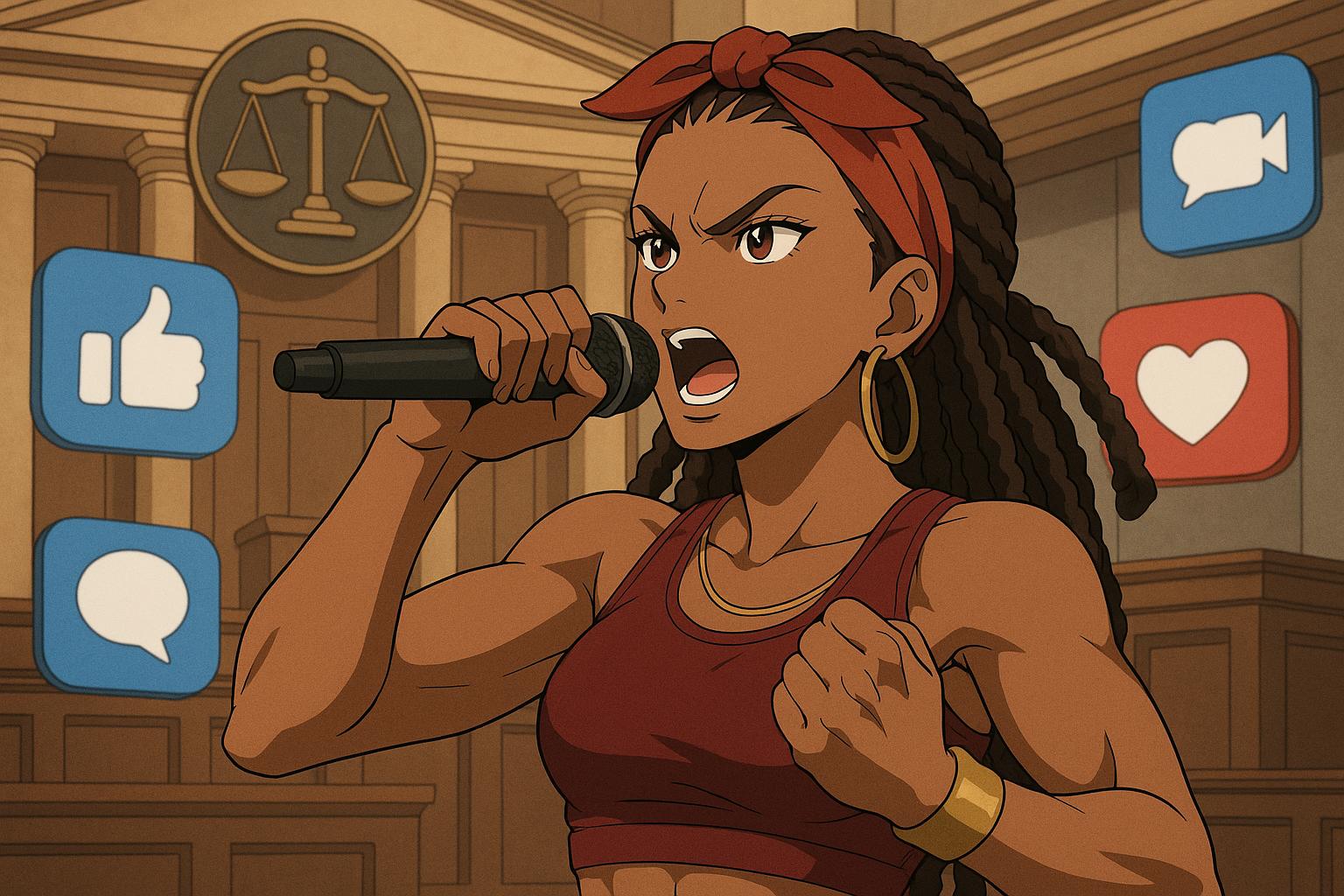On July 12, 2020, a tumultuous incident in Los Angeles involving Tory Lanez (real name Daystar Peterson), Megan Thee Stallion (Megan Pete), and Kelsey Harris triggered a media storm that would shape discourse on gender dynamics and accountability in the hip-hop industry for years to come. The night began at a gathering at Kylie Jenner's residence and escalated dramatically, culminating in Megan sustaining gunshot wounds to her feet. She publicly identified Lanez as her assailant, igniting debates around not just the specifics of that fateful evening but also broader societal issues, including violence against women and the implications of misogyny in hip-hop.
The subsequent trial saw Lanez convicted of multiple felony charges, including assault with a semiautomatic firearm, in December 2022. His sentencing to ten years in prison in August 2023 marked a significant moment in cultural conversations about violence against women, particularly Black women. As of 2025, the case's repercussions are still palpable, with Lanez’s legal team actively pursuing appeals. However, legal experts caution that such moves may not yield immediate results, as the processes in play are notoriously complex and drawn out.
Kelsey Harris, who was present during the incident, became a focal point in the trial, offering testimony that was both scrutinised and controversial, given her conflicting statements. While Harris initially corroborated Megan's version, she struggled under cross-examination, leading to public speculation regarding her loyalties and the pressures she faced. As of 2025, Harris has largely withdrawn from the public eye, her career overshadowed by the incident and tainted by the scrutiny that has followed her testimony.
Megan Thee Stallion, by contrast, has emerged from the incident with a reinforced public persona, one rooted in advocacy and empowerment. She has leveraged her platform to speak out against violence and injustice, becoming a symbol of resilience in an industry rife with misogyny. Her music releases, which resonate with themes of strength and recovery, continue to dominate charts, solidifying her influence within pop culture and the music industry.
Freddie Gibbs, while not directly involved in the shooting, has weighed in on the implications of the case for hip-hop culture. His commentary on societal and legal accountability reflects a broader trend among artists increasingly vocal about the industry's moral quandaries. As both an artist and an observer of the evolving landscape, Gibbs continues to release music, contributing to dialogues around gender, loyalty, and power within the hip-hop community.
The media discourse surrounding the incident has evolved significantly, shifting public sentiment as well. The conviction of Lanez has incited a polarized response among fans and industry peers, with debates erupting across social media platforms. Movements like #ProtectBlackWomen gained momentum as supporters rallied around Megan while others attempted to minimise her narrative. The role of social media as an arena for public opinion and misinformation cannot be overstated; it has transformed how narratives are constructed and contested in a digital age.
As of 2025, the legacies of these events continue to unfold. Lanez remains incarcerated, his music career sidelined as he attempts to navigate the appeals process. Reports indicate he has faced challenges within the prison system, including a violent incident that left him with serious injuries. Meanwhile, Megan's continued success and advocacy highlight the growing recognition of issues such as misogyny and violence in music, while Kelsey Harris's reception varies widely, with her future in the industry uncertain.
Looking ahead, the echoes of this incident will likely influence industry norms and practices surrounding accountability and support for victims. Insights from the case may inform policy reforms within record labels regarding artist conduct and the treatment of allegations, fostering a landscape that prioritises safety and justice. As the music industry grapples with the ramifications of this saga, the ongoing dialogue will shape its future direction, striving towards a more equitable environment for artists.
In conclusion, the saga involving Tory Lanez, Megan Thee Stallion, and Kelsey Harris has become a touchpoint for wider conversations on violence, gender, and accountability in hip-hop. As 2025 continues to unfold, the repercussions of their intertwined narratives will demand engagement, reflection, and ultimately, change within the industry.
Reference Map
- Background and Context of the Incident
- Key Figures: Roles and Relationships
- Media Coverage and Public Perception
- Legal Proceedings and Outcomes
- Impact on Careers and Public Image
- Role of Social Media in Shaping Narratives
- Reactions from the Music Industry
- Future Developments and Possible Collaborations
- Forecast: Long-Term Implications and Industry Predictions
Source: Noah Wire Services
